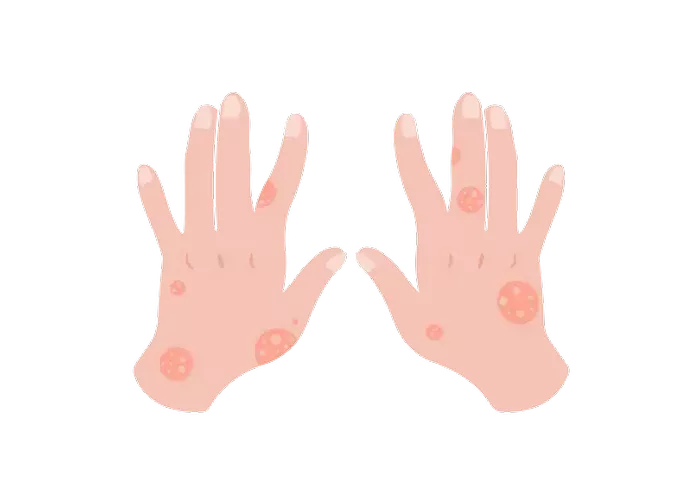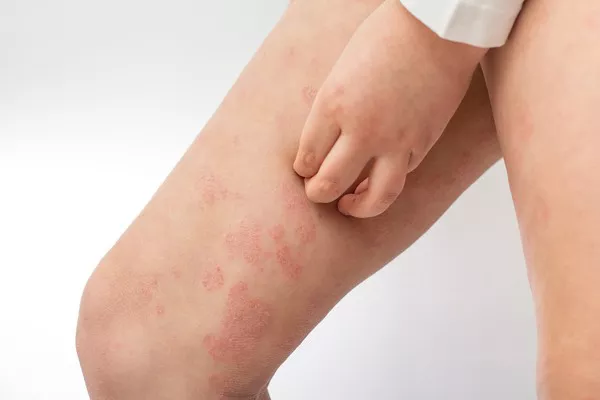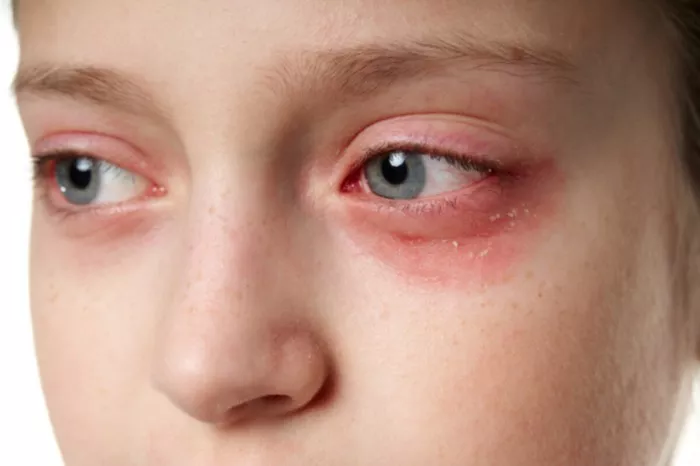Eczema is a chronic skin condition that causes inflammation, redness, and irritation. Understanding what triggers eczema flare-ups can be a critical step in managing the condition effectively. Triggers vary from person to person, making it important to identify which factors are specific to your skin. In this article, we will explore various ways to find out what triggers eczema and how you can manage it.
Understanding Eczema and Its Triggers
Eczema, also known as atopic dermatitis, is a skin condition that leads to dry, itchy, and inflamed skin. It can occur anywhere on the body and often starts in childhood. While the exact cause of eczema is not known, it is believed to involve a combination of genetic and environmental factors.
Triggers are substances or conditions that cause eczema to worsen or flare-up. Identifying these triggers is key to reducing symptoms and preventing flare-ups. Common eczema triggers include environmental factors, certain foods, skin irritants, stress, and infections.
Step 1: Keep a Detailed Skin Journal
One of the most effective ways to find your eczema triggers is by keeping a skin journal. This journal will help you track your symptoms, identify patterns, and link flare-ups to specific activities, foods, or environmental changes. Here’s how to create a useful journal:
Document Daily Activities: Write down what you do each day. Include details like the weather, location, diet, and any new skin products you use.
Track Symptoms: Make a note of any changes in your skin, such as dryness, redness, itching, or swelling. Record the time of day and how long the flare-up lasts.
Note Stress Levels: Stress can be a major eczema trigger, so record your emotional state throughout the day. If you experience a stressful situation, note it down and observe if it relates to flare-ups.
Highlight New Exposures: If you use a new skincare product, detergent, or try a new food, write it down. Certain substances may worsen eczema symptoms.
Review Weekly: After tracking for a week or two, review your notes. Look for common factors associated with flare-ups.
By documenting your symptoms, you may start to see patterns that reveal potential triggers.
Step 2: Eliminate and Test Common Triggers
Once you’ve tracked your eczema for a while, it’s time to start eliminating potential triggers. The goal is to systematically remove one possible trigger at a time and observe if symptoms improve. Here are some common eczema triggers to test:
Irritants and Allergens
Irritants are substances that can directly damage the skin, while allergens cause allergic reactions that may worsen eczema. Both can trigger flare-ups. Common irritants include:
Fragrances: Scented lotions, soaps, or shampoos may irritate the skin and worsen eczema.
Harsh Chemicals: Cleaning products, detergents, or fabrics treated with chemicals can aggravate sensitive skin.
Wool: Woolen fabrics can be too rough on the skin, leading to irritation.
Nickel: Jewelry or clothing with nickel, such as belt buckles, can cause eczema flare-ups in some people.
Household Dust and Pollen: Dust mites and pollen are common allergens that may worsen eczema.
To test if any of these irritants are triggers, start by eliminating one from your environment. For example, if you think laundry detergent might be a problem, switch to a mild, fragrance-free version for a few weeks and observe if your eczema improves.
Foods
Certain foods are known to trigger eczema flare-ups, although food allergies are more common in children than in adults. Some common food triggers include:
Dairy: Milk, cheese, and other dairy products can cause flare-ups for some people.
Eggs: Eggs are another food that can trigger eczema in sensitive individuals.
Wheat and Gluten: Some people with eczema may have sensitivities to wheat or gluten, leading to flare-ups.
Nuts: Nuts, particularly peanuts, can cause allergic reactions that worsen eczema.
Soy: Soy-based foods are also common allergens that may affect people with eczema.
If you suspect that food might be a trigger, try eliminating one food group at a time for a few weeks and monitor your skin’s response. If symptoms improve, gradually reintroduce the food to see if your skin reacts again. It’s best to do this under the supervision of a doctor or allergist.
Weather and Temperature
The weather and temperature can have a significant impact on eczema. Both hot and cold weather can lead to flare-ups, but for different reasons:
Cold Weather: During colder months, the air is drier, which can lead to dry skin and eczema flare-ups. Cold weather can also cause your skin to crack, creating openings for infection.
Hot and Humid Weather: Excessive sweating from hot and humid conditions can irritate the skin, triggering eczema flare-ups. Additionally, sweating can cause skin irritation if it’s not washed off promptly.
To determine if temperature is a trigger, track the weather conditions when flare-ups occur. If you notice a correlation, try to protect your skin by dressing appropriately, using moisturizers, and avoiding extreme temperature changes.
Stress
Stress is a common trigger for eczema flare-ups. When you’re stressed, your body releases hormones like cortisol, which can cause inflammation in the skin. Stress can also affect your sleep, further aggravating eczema symptoms.
To identify stress as a trigger, pay close attention to your emotional state during flare-ups. Are they happening after stressful events or periods of anxiety? If so, consider incorporating stress-reducing techniques into your daily routine, such as yoga, deep breathing, or mindfulness meditation.
Step 3: Consult a Doctor or Dermatologist
If your skin journal and elimination process don’t provide enough insight into your eczema triggers, it may be time to seek professional help. A doctor or dermatologist can help you narrow down potential causes through a variety of methods:
Patch Testing: A dermatologist may conduct a patch test to identify allergic reactions to certain substances, such as fragrances or metals.
Blood Tests: Blood tests can check for food allergies or immune system dysfunction that may be related to eczema.
Skin Biopsy: In rare cases, a biopsy of the affected skin may be performed to rule out other skin conditions and confirm eczema.
Consulting a doctor can also help you develop a treatment plan to manage your eczema, including prescription medications, topical treatments, and lifestyle modifications.
Step 4: Maintain a Consistent Skincare Routine
Once you’ve identified your triggers, it’s important to take steps to protect your skin and prevent flare-ups. A consistent skincare routine is essential for managing eczema. Follow these tips:
Moisturize Regularly: Keeping your skin hydrated is one of the most important steps in managing eczema. Use a thick, fragrance-free moisturizer multiple times a day, especially after bathing.
Avoid Hot Water: Hot water can strip the skin of its natural oils, leading to dryness and irritation. Opt for lukewarm showers and baths.
Use Gentle Skin Products: Choose soaps, shampoos, and lotions that are gentle on the skin and free from fragrances, dyes, and harsh chemicals.
Wear Soft, Breathable Fabrics: Choose cotton and soft fabrics to avoid irritation. Avoid wool and synthetic fibers that can scratch and cause discomfort.
Manage Stress: Stress management techniques like deep breathing, exercise, and relaxation can help keep flare-ups at bay.
Step 5: Regularly Review and Adjust
As time passes, your eczema triggers may change. It’s important to periodically review your journal and adjust your skincare routine as needed. New environmental changes, stressors, or products may introduce new triggers that require attention.
Conclusion
Finding out what triggers eczema requires patience, observation, and trial and error. Keeping a detailed journal, eliminating common triggers, and consulting with a doctor are all important steps in identifying what worsens your eczema. By making small adjustments to your lifestyle and skincare routine, you can minimize flare-ups and manage your condition more effectively. Always remember that eczema management is a continuous process, and staying informed about your triggers is the best way to keep your skin healthy and comfortable.
Related topics:



























